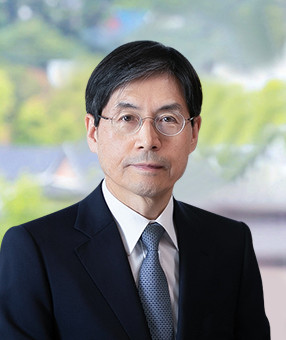On December 26, 2022, the Ministry of Justice (the “MOJ”) announced a proposed amendment to the Civil Code (the “Proposed Amendment”) that will establish an exclusive statutory right to commercially exploit one’s own name, likeness, voice, and other aspects of one’s persona (“persona”). The Proposed Amendment is intended to codify the “right of publicity” in Korean law.
The MOJ cited the following as major reasons for the Proposed Amendment: (i) lack of clarity regarding whether the right of publicity can be inherited after the death of the right holder and for how long the right can be protected, which has given way to an increase in related disputes and insufficient protection of such rights; and (ii) the fact that other major jurisdictions such as the United States, Germany, Japan and France already recognize the right of publicity as a statutory right or acknowledge it based on court precedents.
The key details of the Proposed Amendment are as follows:
1. Definition, Scope, Transferability and Inheritability of Right of Publicity (Article 3-3, Paragraphs (1), (2) and (5) of the Proposed Amendment)
Historically, discussions regarding the right of publicity focused on the personas of well-known individuals such as celebrities. However, the Proposed Amendment broadens the scope of individuals protected by the right of publicity, declaring that the commercial exploitation of one’s own persona is a universal right belonging to every person regardless of fame (Article 3-3 (1)).
The Proposed Amendment expressly states that the right of publicity is not transferable (Article 3-3(2)). However, upon the death of the right holder, the right of publicity can be inherited, remaining valid for 30 years starting from the date of inheritance (Article 3-3 (5)).
Once the Proposed Amendment is enacted, it will be necessary to review whether a license is needed for every single commercial use of another person’s persona, including the person’s name, likeness, and voice (to be discussed below), particularly given that the right of publicity is not transferable.
2. Licensing Right of Publicity (Article 3-3, Paragraphs (3) and (4) of the Proposed Amendment)
The Proposed Amendment does allow the holder of the right of publicity to license the right to commercially use his/her persona to another person. However, the holder of right can also withdraw the license if certain reasons arise, such as if the licensee commercially uses the persona in a manner contrary to the holder’s principles (Article 3-3 (3)). The MOJ explained that this provision reflects the close connection between an individual’s persona and his/her beliefs and values.
The Proposed Amendment also allows a person who has a legitimate interest in using another person’s persona to commercially exploit said persona without the rights holder’s consent within reasonable bounds (Article 3-3 (4)). The MOJ provides some examples of cases where someone may use the persona of another individual as part of their legitimate activities, including (i) if the face of a person in the audience is displayed on a screen during a live broadcast of a sports event, or (ii) if a clip of a passerby’s interview is used in the media.
3. Remedies for Violation of Right of Publicity (Article 3-3, Paragraph (6) of the Proposed Amendment)
In the Proposed Amendment, the MOJ recognizes the holder’s right to seek legal remedy through injunctive relief to prevent infringement. The MOJ’s reasoning is that a claim for damages (which is essentially the right to receive compensation ex post facto) alone may not effectively or sufficiently remedy the harm caused by infringement of one’s right of publicity. Thus, pursuant to the Proposed Amendment, a rights holder would be entitled to demand the takedown or suspension of content that infringes his/her publicity rights.
Under the Proposed Amendment, it will be necessary to review all commercial uses of a persona, including a person’s name, likeness or voice, to determine whether a license for publicity rights is required. Even if a license is secured, the licensee must be careful to avoid any “material reasons” that would give the rights holder a basis to withdraw the license, in the course of using the licensed rights. In short, it will be necessary for the user of any persona to check constantly whether legitimate rights to use the persona have been secured.
With the new legislation on the right of publicity, including the exceptions to protection and remedies provided therein, disputes between rights holders and users over the scope of “material reasons” for which the rights holder may withdraw a license to use his/her persona (or the scope of uses that do not require a license) are expected to arise.
The MOJ has indicated it plans to finalize the Proposed Amendment after due consideration of public comments collected during the pre-announcement period, and to submit the final draft to the National Assembly in the first half of 2023 after going through the necessary legislative procedures. Therefore, companies are advised to closely monitor the legislative progress on the Proposed Amendment and to review their uses of individual personas to ensure compliance with the new law.
Related Topics







